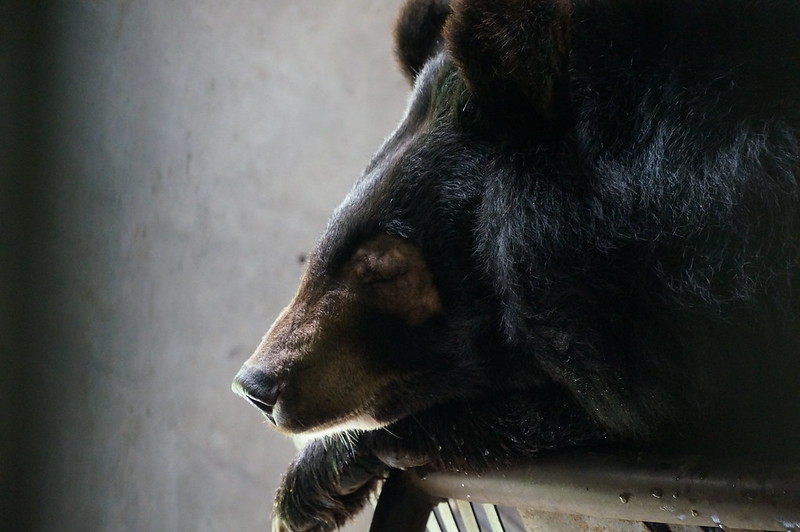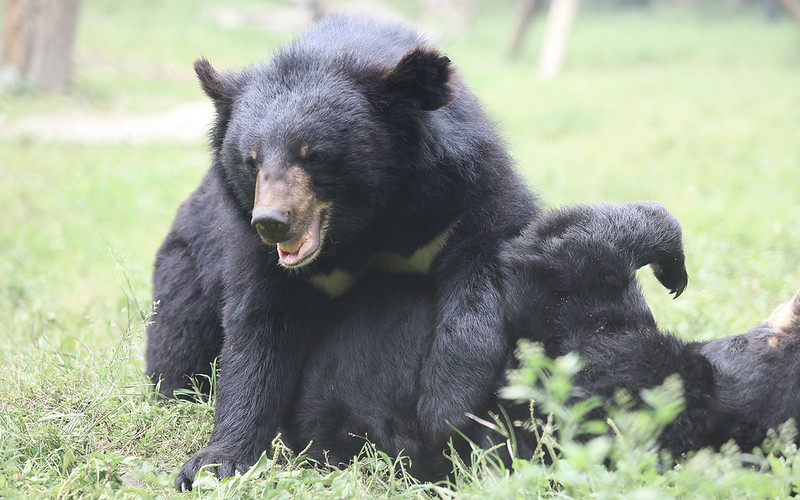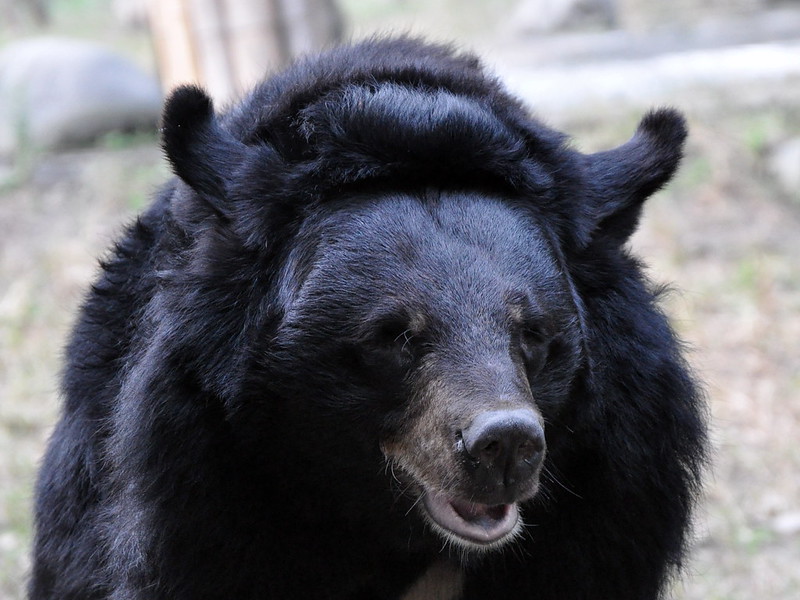A bear bile farm has finally taken Sophie’s sight – but not her life
13 July 2017
Forever in the dark but with the sun on their backs – the rescued bears who have lost their sight to bile farms still enjoy a high quality of life.
Since being rescued from a Chinese bile farm nearly 10 years ago, moon bear Sophie has required constant medical attention to manage her pain and maintain her quality of life.
On the farm, her body was mutilated so that bile constantly dripped out of her abdomen and when rescued, her gall bladder was so ravaged it had to be surgically removed.
She has long suffered from cataracts in both eyes and in 2015, her right eye – bulging, bleeding and not working – was removed to relieve pain.
And last month Sophie was back with the surgical team. An eye specialist had confirmed Sophie’s remaining eye no longer could see and with painful infection once again causing her agony, Sophie’s left eye was also removed.
Animals Asia Senior Veterinarian Emily Drayton, who carried out Sophie’s surgery, said:
“Sophie’s eye had discharge and the pupil was constantly constricted – a sign of spasm and pain. We detected inflammation and bleeding and sadly medication wasn’t fixing the condition, leaving us with little option but surgery.
“Despite needing frequent health checks and surgical interventions over the past few years, Sophie has always been a content, calm and relaxed bear. We’re confident that with the painful eye removed, she will continue to live a happy, pain-free life.”
Disability no barrier to living well
As a blind resident at Animals Asia’s China Bear Rescue Centre, Sophie is not alone.
Six other blind bears already live in a private enclosure where they can continue to lead active lives – foraging, climbing, swimming and wrestling.
While a total of 10 bears are already blind at the sanctuary, this is a figure Animals Asia expect to continue to rise as 60% of the 92 bears on site live with some level of ocular disease which requires specialist attention.
The range of eye problems runs from retinal detachment and lens luxation, which both result in blindness, to cataracts, lesions and ulcers, which can cause pain and severe loss of vision.
Through years of research and experience, Animals Asia staff believe the conditions that prevail in bear bile farms, including nutritional deficiency, chronic dehydration, physical and mental stress and constant infection, predispose bears to ocular disorders.
Animals Asia’s Founder and CEO, Jill Robinson MBE said:
“While the age of the bears at the sanctuary certainly has a part to play in the very high instances we’re seeing of ocular disease, I believe the primary cause is the extreme conditions the bears have endured on bile farms.
“No animal is capable of enduring such atrocious treatment without serious repercussions and even bears – so strong and stoic – are no exception. Their bodies have been subjected to the most abominable torture and no part of them is unaffected by what is done to them on farms.
“Fortunately, we have found that blindness – when managed correctly – doesn’t have to mean a drop in welfare or quality of life. The blind bears at our sanctuary remain active, playful and happy and are much loved members of the sanctuary community.”

BACK







